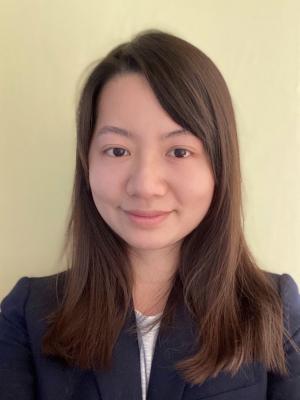The Training Page
From The Fellows Committee
Guiding Lights: Transformative Mentorship in the NIH Community
BY STACY LIANG, NIAID
Each of us plays multiple roles in our daily lives as both mentors and mentees. As a postdoctoral fellow in a laboratory, I am mentored by principal investigators and senior research colleagues. Simultaneously, I also mentor postbacs and new lab members. These mentorship experiences can be transformative and have long-term effects on our professional and personal lives, whether positive or negative.
A couple of fellows reached out to share successful mentorship stories. We thought it would be nice to share their stories as well as some mentoring resources that are available at NIH.
Binta Jalloh, a postdoctoral fellow at NCI, was an enthusiastic undergraduate student fascinated by science. During a college summer internship at the Woods Hole Marine Biology Laboratories, she met research scientists who inspired her to pursue a career in academic research. Among those heroes was Harold Gainer, NINDS scientist emeritus. Jalloh vividly remembers his telling her how talented she was and expressing his belief in her potential as a scientist. Since, Jalloh has held onto those encouraging words during the ups and downs of her research career. As a young refugee from Sierra Leone, born during the country’s civil war, she shared that the transformative impact of Gainer’s mentorship remains after his passing last November.
Samar Sayedyahossein, a clinical research scientist in the CC’s Department of Laboratory Medicine, who has worked for several years with David Sacks, chief of Clinical Chemistry Service, offered a similar transformative story. Sayedyahossein has experienced profound growth, both personally and professionally, during her time at NIH. She credits Sacks’ approach to data objectivity and scientific integrity, and noted one pivotal moment that occurred when facing a research challenge in which Sacks advised her to focus on strengths and make her way through limitations. Through that sage advice, Sayedyahossein not only conquered obstacles but also discovered her own resilience and adaptability.
Countless other stories unfold at NIH every day that are both positive and negative experiences. Mentorship is not unidirectional; it involves interactions between mentors and mentees. Jalloh and Sayedyahossein both believe a good mentor is someone who can recognize and nurture the strengths of a mentee, acknowledge them fairly, and guide them through the realities of imperfections and limitations.
Teaching and mentoring is one of the six core competencies of the Office of Intramural Training and Education (OITE). OITE offers guidelines on building relationships with mentors, covering topics such as understanding and establishing expectations, developing a mentor network, addressing issues, and integrating into research groups. OITE also provides a series of leadership and management training for those aspiring to be inspiring and supportive leaders in research and other fields, including cultivating talent from diverse backgrounds and promoting principles of diversity, equity, and inclusion.
Mentorship resources across NIH also include the Women of Color Research Network and the Women Scientists Advisors (WSA), which offer seminars and other networking opportunities. Subscribe to the WSA mailing list to learn more about upcoming events and opportunities.
Through shared experiences of guidance and support, these narratives illuminate the enduring legacy of mentorship, affirming its vital role in nurturing talent and driving progress within the NIH community.

Stacy Liang serves as the NIH Catalyst Training Page Coordinator and is a NIAID Rocky Mountain Laboratories–Bethesda (Rocky-Beth) postdoctoral fellow. She studies lipidomics during fungal infections.
This page was last updated on Monday, December 2, 2024
